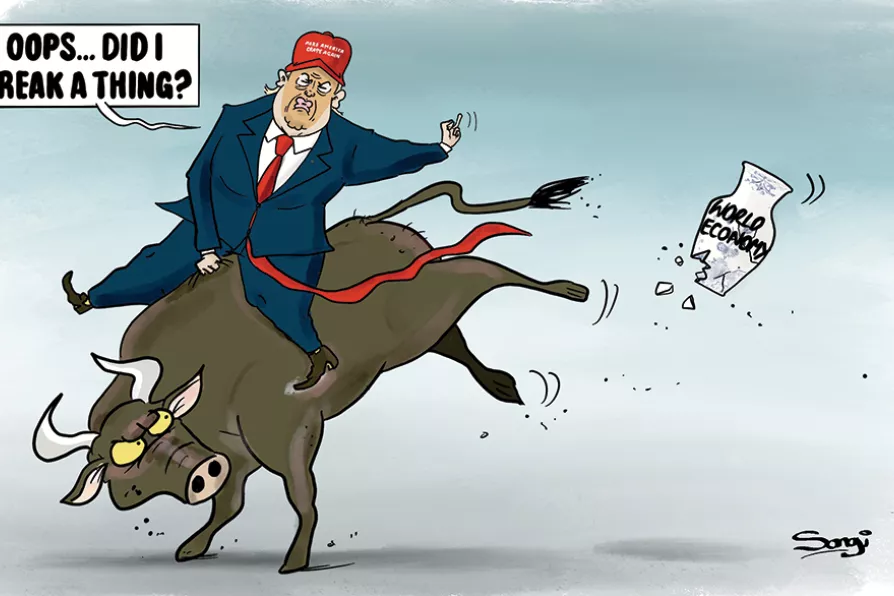CHRISTOPHE DOMEC speaks to CHRIS SMALLS, who helped set up the Amazon Labor Union, on how weak leadership debilitates union activism and dilutes their purpose

 Cartoon: Songi
Cartoon: Songi
THE radical return to protectionism is not only possible but necessary for an empire facing an undeniable decline. It has been denounced by critical analysts but certified by leading intellectuals of the US Establishment, such as Zbigniew Brzezinski in a 2012 text and, subsequently, by several documents of the Rand Corporation.
Decline, or dissolution, if you prefer, came hand in hand with critical domestic factors: the slow growth of the economy, the loss of competitiveness in global markets, and the gigantic indebtedness of the federal government. If in 1980 the US federal government’s debt-to-GDP ratio was 34.54 per cent, today it has reached an astronomical level of 122.55 per cent. To this must be added the intractable balance of the trade deficit, which continues to grow and in 2024 amounted to $131.4 billion, representing roughly 3.5 per cent of the GDP. This is the case because the US consumes more than it produces.
To this constellation of domestic factors of imperial weakening should be added the deterioration of democratic legitimacy. The latter was highlighted by the January 6 2021 assault on the Capitol and by the more recent widespread pardons granted by Trump in favour of some 1,500 attackers who had been convicted by the US judiciary. Instead of bipartisan consensus, today, there is a huge rift undermining the political system, of which Trumpism is but one expression.

In a speech to the 12th Xiangshan Forum in Beijing, SEVIM DAGDELEN warns of a growing historical revisionism to whitewash Germany and Japan’s role in WWII as part of a return to a cold war strategy from the West — but multipolarity will win out

FRANCISCO DOMINGUEZ says the US’s bullying conduct in what it considers its backyard is a bid to reassert imperial primacy over a rising China — but it faces huge resistance

In the first half of a two-part article, PETER MERTENS looks at how Nato’s €800 billion ‘Readiness 2030’ plan serves Washington’s pivot to the Pacific, forcing Europeans to dismantle social security and slash pensions to fund it










